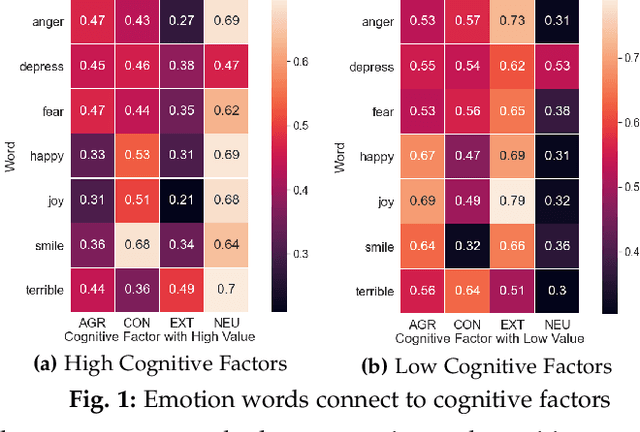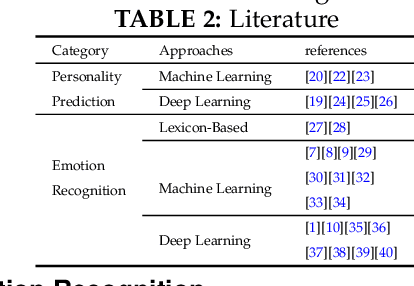EmoDNN: Understanding emotions from short texts through a deep neural network ensemble
Paper and Code
Jun 03, 2021



The latent knowledge in the emotions and the opinions of the individuals that are manifested via social networks are crucial to numerous applications including social management, dynamical processes, and public security. Affective computing, as an interdisciplinary research field, linking artificial intelligence to cognitive inference, is capable to exploit emotion-oriented knowledge from brief contents. The textual contents convey hidden information such as personality and cognition about corresponding authors that can determine both correlations and variations between users. Emotion recognition from brief contents should embrace the contrast between authors where the differences in personality and cognition can be traced within emotional expressions. To tackle this challenge, we devise a framework that, on the one hand, infers latent individual aspects, from brief contents and, on the other hand, presents a novel ensemble classifier equipped with dynamic dropout convnets to extract emotions from textual context. To categorize short text contents, our proposed method conjointly leverages cognitive factors and exploits hidden information. We utilize the outcome vectors in a novel embedding model to foster emotion-pertinent features that are collectively assembled by lexicon inductions. Experimental results show that compared to other competitors, our proposed model can achieve a higher performance in recognizing emotion from noisy contents.
 Add to Chrome
Add to Chrome Add to Firefox
Add to Firefox Add to Edge
Add to Edge